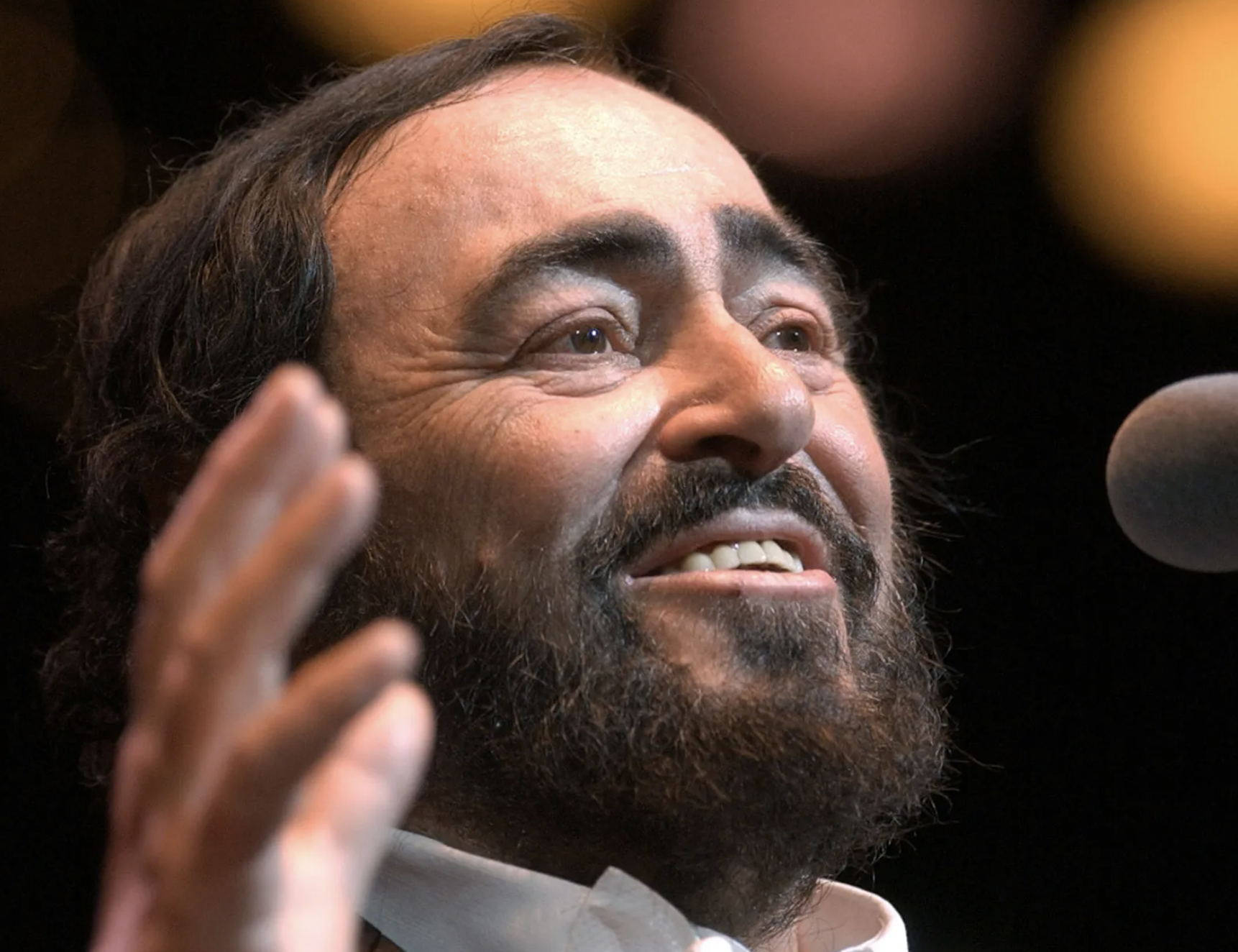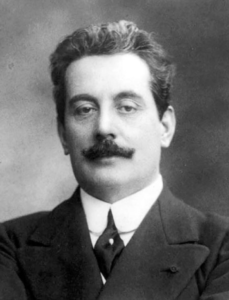
An aria I love and think is sublimely beautiful, as millions of people do, is “Nessun Dorma” from Puccini’s last opera Turandot. Here is the beginning sung by the great Luciano Pavarotti with the London Philharmonic Orchestra.
I learned from Aesthetic Realism this great principle: “The resolution of conflict in self is like the making one of opposites in art.” And this aria puts together two opposites people are very troubled by and which I have been: assertion and yielding. Though the plot of the opera is complicated and not entirely convincing, there is something symbolically true in this aria as a man asserts his passionate desire to have a woman true to herself. She has been cold and cruel, and this night will determine his fate—whether he is to live or die. He sings quietly, “Nessun dorma, None shall sleep!” and says, “You too, O princess, in your cold room, you watch the stars tremble with love and hope.” His name is Calaf, and the woman is Princess Turandot.
Proudly Assertive & Yielding at the Same Time
The first thing we hear is Calaf singing assertively on a single pitch, “Nessun dorma,” but immediately Puccini asks the tenor to repeat the phrase in the deep, yielding register of his voice an octave lower. There is humility and gentleness even as this beginning melody also asserts that single note, D, eight times. While this is happening, the orchestral strings rise from their deepest register to the heights. On the word “Nessun,” the woodwinds add a mysterious chord. And as he imagines her looking at the stars, all this is marked Andante Sostenuto, “slowly sustained”—a thoughtful tempo. It’s as if Calaf is asserting: “I am the man that can have you break out of your coldness and be closer to things.” The music is not arrogant or pompous; it is both proudly assertive and yielding at the same time. I start again at the beginning and play even more of this magnificent music.
The music soars as Calaf asserts he is the man to melt her cold, hard heart. He sees something imprisoned in Turandot and believes he can be a means for her to love a person. He rises up to high A and repeats it, almost crying out. And as his melody cadences, comes to rest on the very note he began with, D, Puccini does this wonderful thing with the orchestra: he goes from an assertive dominant chord, not to the expected tonic, but to the most yielding chord in any major key: the sub-dominant.

Puccini’s harmonies make you melt. There is tenderness at one with strength, calling forth in Pavarotti some of the most beautiful singing I’ve ever heard—passionately assertive and yielding for the same purpose. I believe Calaf stands for the principle of good will, which Aesthetic Realism defines as “the desire to have something else stronger and more beautiful, for this desire makes oneself stronger and more beautiful.”
“Nessun Dorma” illustrates greatly what people are hoping for, what I’m hoping for in my life. I learned from Aesthetic Realism that having good will as our purpose enables us increasingly to have a good relation of assertion and yielding. I also learned that without good will, we will assert and yield in a way that is unkind and hurtful.
Assertion & Yielding in Love
While I am different from Princess Turandot, I, too, prided myself on my ability to assert myself and my opinions in a way that was often hard and inconsiderate. And I felt yielding was weak. I’m grateful for what I’ve learned about this enabling me to change, including in my marriage to Bennett Cooperman.
A pivotal time was when Bennett and I began to live together. While very happy, I also felt I was losing something. I was in tumult and spoke about it in an Aesthetic Realism class conducted by the Chair of Education, Ellen Reiss. She asked: “Do you think you are bending over backwards in having Bennett Cooperman more in your life? “Yes,” I said, and she explained:
ER. When two people come together, there is a great drama of assertion and yielding. Do you feel somewhere he’s going to annihilate your personality; you’re going to have to yield to him all over the place?
MN-C. Yes! That is what I feel.
ER. Do you think you want, on the one hand, for Bennett Cooperman to be with you, but on the other hand, a woman who wants very much to be with a man can feel she’s going to be made into nothing in some way—the Meryl Nietsch that was will be no more! The great question is if a person means more to us, are we more or less?
I’m very glad to feel that I am more, proud to feel that through my marriage to Bennett, assertion and yielding in me are in a much better relation.
Returning to the aria: After that great outpouring of melody already so full and so rich, Puccini honors the principle of feeling more. In the second stanza of this aria, he goes even further—not only does the chorus enter from a distance taking up Calaf’s melody and standing for the wide world, but as the tenor reenters, he soars triumphantly up to the highest note of all, high B. Pavarotti sustains that note astonishingly and with all of himself. His voice is both proudly assertive and passionately yielding. And he is singing “vincero!”—“I will be victorious!” We feel it is the victory of good will, the victory of honest warmth over coldness.
I’m glad to be learning deeply from the music of Puccini and this performance of the great Luciano Pavarotti how, as the title of our seminar says: “Music Tells Us How We Want to Be!” Here is the conclusion of the aria.